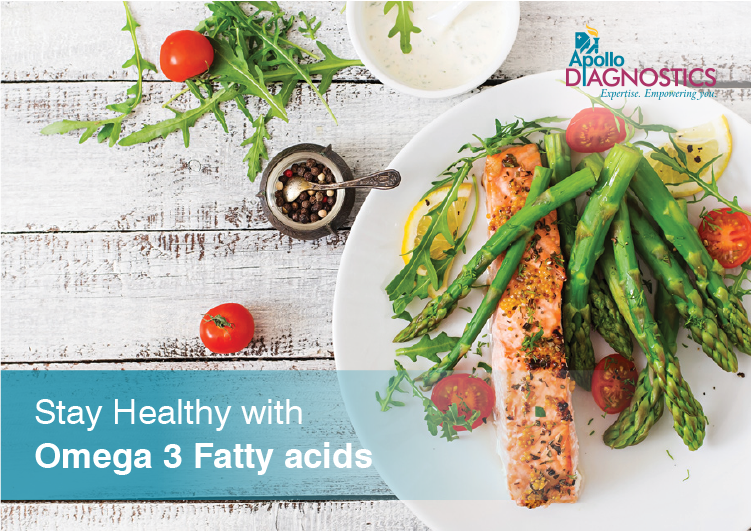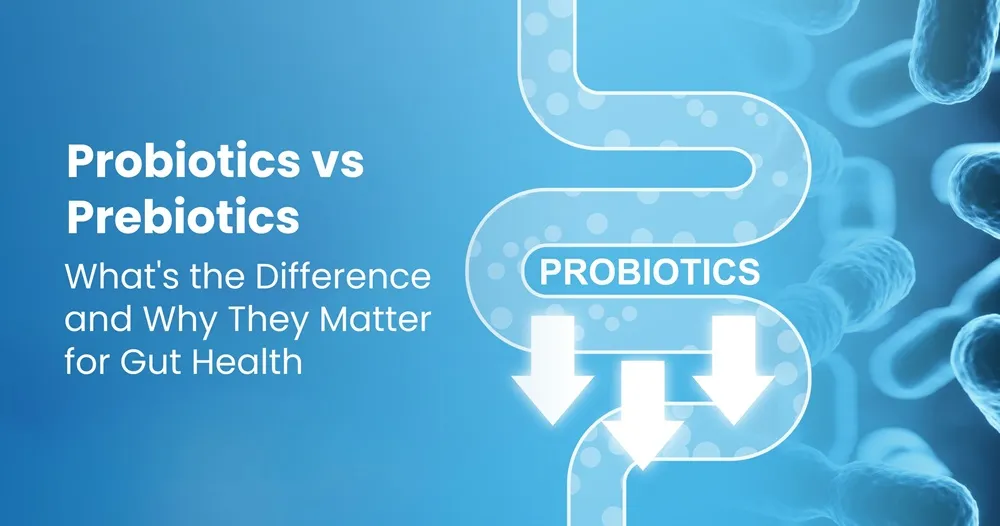Stay Healthy with Omega–3 Fatty Acids
Jun 04, 2020

Omega-3 fatty acids also known as just Omega-3 are an important type of fat that can be derived from your diet. It is important for normal growth and development. So, if you are planning to cut back from fats in your diet, be careful that you do not cut out on this. Omega-3 fatty acids can also help you with numerous health benefits like depression, rheumatoid arthritis, Alzheimer’s, and even dementia. In fact, a lack of intake of omega-3 fatty acids can make you prone to many illnesses.
Here is an insightful account on this healthy diet ingredient that can help us lead a healthier life:
What foods contain Omega-3 fatty acids?
Omega-3 can be naturally found in some of our food products and you do not have to go looking for it in dietary supplements. The nutrient consists of two important polyunsaturated components, among others, namely eicosapentaenoic acid (EPA) and docosahexaenoic acid (DHA), which have been scientifically proven to help in lowering blood pressure and improving depression and anxiety. Some of the foods that contain omega-3 are as follows.
Fish and seafood like tuna, salmon, mackerel, oysters, and sardines
Fortified foods like yoghurt, eggs, and soy beverages
Nuts and seeds like walnuts, chia seeds, pecans, flaxseed, and mustard seeds.
Foods with omega-3 fatty acids are very important in our diet and it is severely lacking in the foods that we eat today.
How much Omega-3 fatty acids do we need in our diet?
There is no particular measurement or dosage of how much Omega-3 one should consume per day. However, health organizations suggest that adults should consume at least 250-500 mg of EPA and DHA every day to stay healthy. In case of certain health conditions, the dosage can be higher. For instance,
a person suffering from coronary heart disease is recommended to take 1000 mg
a person with triglycerides imbalance must take 2000-4000 mg
for people suffering from depression and anxiety a dosage of 200-2200 mg is recommended.
Omega 3 is also vital for pregnant womenduring, and after pregnancy.
Are there any risks involved?
Though omega-3 fatty acids come with great benefits, overdosage can lead to health risks like hemorrhoids and bleeding. That is why the recommended dosage must not exceed 3000 mg per day according to the Food and Drug Administration (FDA). Some other risks involved with taking Omega-3 fatty acids are as follows-
They can cause gastrointestinal problems like diarrhea, indigestion, and belching.
Over-consumption of omega-3 can cause blood thinning and excessive bleeding.
Fish is a good source of omega-3 but is also affected by pollutants in the water. That is why pregnant women are recommended not to consume more than 12 ounces of fish per week for the safety of mother and child.
The bottom line is that omega-3 is an essential component of diet and can lead to numerous health benefits. However, safety is also a concern and people must take precaution of where they outsource this nutrient from due to pollutants in the environment. Supplements are one way to get the benefits, however, dosages must be taken accordance to doctor recommendations.
Related Blog Post
- 5 Useful Tips To Keep Sun Strokes Away
- 5 Basic Monsoon Health Tips and Precautions to Stay Healthy During Rainy Season
- Welcome Summer in a Healthy Way
- The Importance of Hydration: 10 Tips for a Healthy Summer
- Tips for Healthy Hair in Summer
- How to Boost Your Immune System with Immunity Boosting Foods
Blog Categories
- Child Health
- Mens Health
- Women's Health
- Mental Health
- Health Myths & Facts
- Fitness
- Nutrition/Recipes
- Remedies
- Weight Management
- Stress Management
- Health Supplements
- Addiction Management
- Disease Management
- Allergy
- Anemia
- Arthritis
- Asthma
- Autoimmune Diseases
- Blood Pressure
- Cancer
- Deficiencies
- Dengue/Malaria/Chikungunya
- Diabetes
- Eye Problems
- Heart Diseases
- Hepatitis
- HIV/AIDS/STD
- Hormonal Imbalance
- Infection/Flu/Viral
- Kidney
- Liver
- Menstrual Problems
- Pregnancy
- Skin & Hair Problems
- Stomach Ailments
- Thyroid
- Others
- Health Checkups
- Diagnostics/Pathology
- Lifestyle & Wellness
- Covid
- Medical Tests
- Cholesterol
- Health Tips
- Parent Care/Old Age
- Lungs
- Food Intolerance









